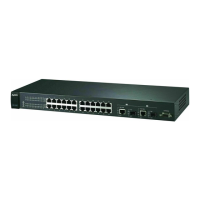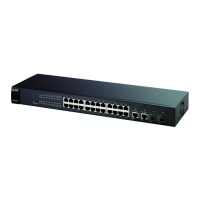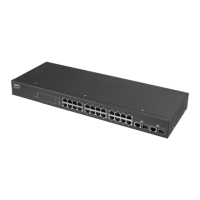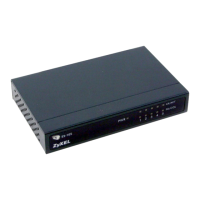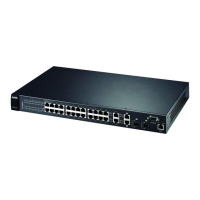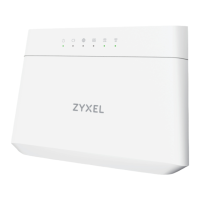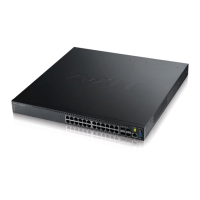Chapter 19 Multicast
ES-2108 Series User’s Guide
138
The Switch forwards multicast traffic destined for multicast groups (that it has learned from
IGMP snooping or that you have manually configured) to ports that are members of that
group. IGMP snooping generates no additional network traffic, allowing you to significantly
reduce multicast traffic passing through your Switch.
19.1.4 IGMP Snooping and VLANs
The Switch can perform IGMP snooping on VLANs. You can configure the Switch to
automatically learn multicast group membership of any VLANs. The Switch then performs
IGMP snooping on the first VLANs that send IGMP packets (see Table 105 on page 253 the
User’s Guide for how many VLANs the Switch can perform IGMP snooping on). This is
referred to as auto mode. Alternatively, you can specify the VLANs that IGMP snooping
should be performed on. This is referred to as fixed mode. In fixed mode the Switch does not
learn multicast group membership of any VLANs other than those explicitly added as an
IGMP snooping VLAN.
19.2 Multicast Status
Click Advanced Applications > Multicast to display the screen as shown. This screen shows
the multicast group information. See Section 19.1 on page 137 for more information on
multicasting.
Figure 73 Advanced Application > Multicast: Status.
The following table describes the labels in this screen.
19.3 Multicast Setting
Click Advanced Application > Multicast > Multicast Setting link to display the screen as
shown. See Section 19.1 on page 137 for more information on multicasting.
Table 42 Advanced Application > Multicast: Status
LABEL DESCRIPTION
Index This is the index number of the entry.
VID This field displays the multicast VLAN ID.
Port This field displays the port number that belongs to the multicast group.
Multicast Group This field displays IP multicast group addresses.
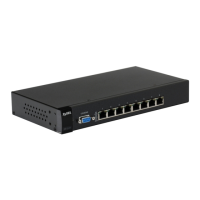
